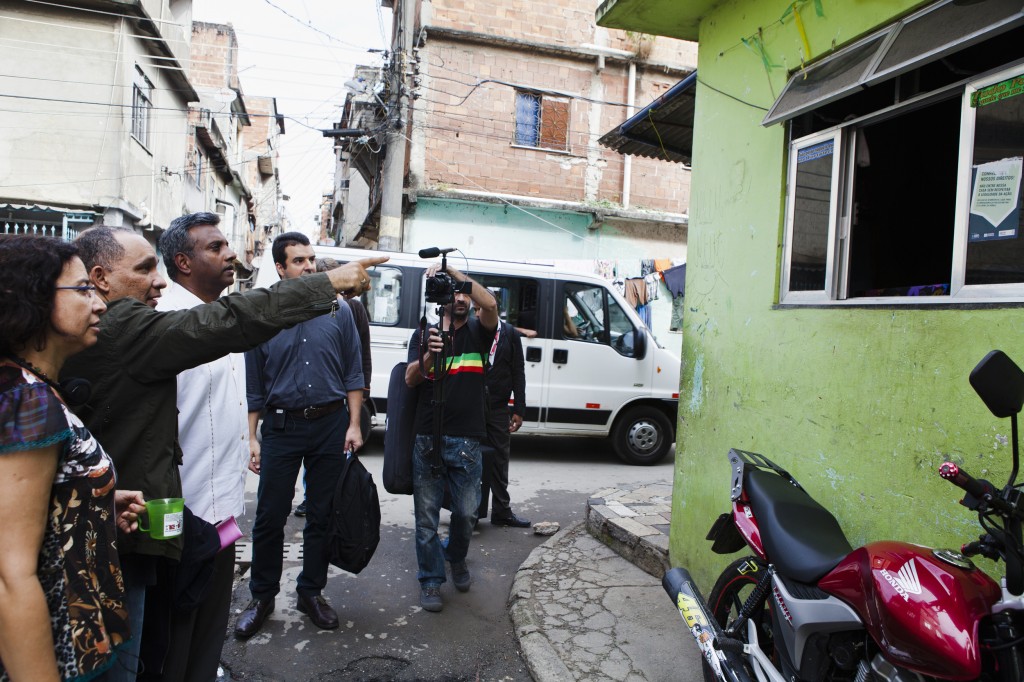
By Salil Shetty, Secretary General at Amnesty International
Yesterday I wrote about the issue of primary concern among the people living in Rio de Janeiro’s Maré slum – impunity. Neither those involved in organized crime – nor the police who too often battle crime by committing crimes themselves – face justice.
Today I met with several members of the National Truth Commission, which was created to look at human rights violations committed between the years 1946 and 1988 – a period that includes the reign of Brazil’s military dictatorship. The current president, Dilma Roussef, herself a survivor of torture, was instrumental in making the Commission happen. Brazil enacted an amnesty law in 1979 that has largely shielded former members of the government from being held accountable for numerous violations, including torture, extrajudicial executions and enforced disappearances – to name a few.
In 2010, the Inter-American Court of Human Rights invalidated the 1979 law. However, the Supreme Federal Court of Brazil has not taken a position with regard to this decision. People in Brazil continue to debate the issue of the amnesty law, which, unlike most amnesty laws, was conceived to free political prisoners and make it safe for people in exile to return. At the last moment, the military managed to get its members brought within the scope of the law.As I discussed the work of the Truth Commission with some of its members, it was heartening to hear their commitment to seeking the truth, modelling transparency, looking beyond the government to other parties that were complicit in the violations, their focus on gender and their commitment to ensuring that the violations experienced by Indigenous communities in Brazil during this time are also included.
One challenge the Truth Commission faces is that for human rights violations which are also crimes, virtually none of those responsible can be prosecuted because the statute of limitations has expired. The one exception is the violation of enforced disappearances which is, under international law, an ongoing violation as survivors continue to live with the uncertainty regarding what happened to those who were disappeared. Unfortunately, enforced disappearances are not listed as a crime under the Brazilian penal code.
It’s already easy to see what some of the key recommendations of the Truth Commission should be.
Another key issue for the Commission to address is the legacy of the military dictatorship. As Egyptians have learned most recently, just because a dictator is deposed does not mean that the architecture of the dictatorship has been dismantled. Decades after the end of Brazil’s military dictatorship, one of its most pernicious legacies remains – the militarization of policing.
Which brings us full circle to yesterday’s discussion in Maré. The pacification program, which is being implemented primarily by the military police, is described by people living in the favelas as more akin to an occupation. The military police do not see themselves as there to protect the people who live in the favelas, to ensure human security, or to bring services back to people living in the favelas. Instead, akin to military principles, the priority appears to be the concept of “force protection” in which the people in the favela are seen as the source of the threat – not the beneficiaries of policing.
Let me say it again. Impunity is a devastating legacy. Impunity compounded by corruption destroys any sense people have that the state is committed to ensuring human security, protecting the marginalized, promoting justice and fulfilling their obligations to ensure that all people enjoy the full range of civil, cultural, economic, political and social rights.
When protestors first took to the streets of Egypt, from Suez to Cairo and beyond, their chants focused on justice, dignity and freedom. As I attended a hearing earlier today co-convened by Amnesty International, the Brazilian Bar Association, the State Commission on Human Rights State and other groups, and I heard again from activists and advocates from across the political spectrum, I thought of how similar these stories were to those I heard in Egypt in 2011.
Corruption is rife. Impunity is enjoyed by those who have power – whether it is economic power, or the power of the police or the power of the criminal wielding the biggest gun. And the political system is failing the people who feel they are objects of arbitrary rule by government, not the subjects of government.
But as my second day in Rio draws to a close, I return again to the reasons for hope that I felt yesterday after seeing the projects being designed and implemented by people living in Maré. The work of the Truth Commission could send a strong message that impunity is not acceptable and although justice may be delayed – ultimately it will not be thwarted. What I saw in Egypt – and am seeing again in Brazil – is the incredible thirst people have for justice, dignity and a voice about how they are governed.


